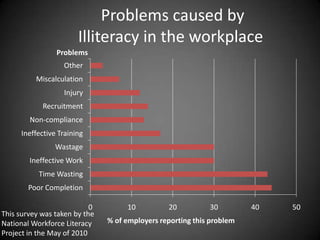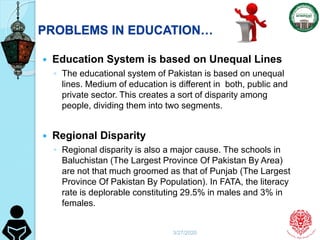Illiteracy, or the inability to read and write, is a pervasive problem that affects people of all ages and backgrounds. It is a complex issue that has far-reaching consequences for individuals, communities, and society as a whole.
One of the most obvious problems caused by illiteracy is a lack of educational and employment opportunities. Without the ability to read and write, individuals may struggle to complete their schooling and may have limited job prospects. This can lead to poverty and a lack of social mobility, as individuals are unable to access higher paying or more skilled jobs.
Illiteracy also has a negative impact on mental health and self-esteem. People who are illiterate may feel isolated and ashamed of their inability to read and write, leading to feelings of low self-worth and a lack of confidence. This can lead to social isolation and a lack of participation in community life, further exacerbating feelings of loneliness and hopelessness.
In addition to the personal consequences of illiteracy, it also has significant societal implications. Illiteracy rates are often higher among marginalized and disadvantaged groups, leading to further inequalities and social exclusion. It can also hinder economic development, as a literate population is more likely to be productive and innovative.
There are several ways to address the problem of illiteracy. Education is key, and providing accessible and affordable education to all individuals is crucial in addressing the issue. This may involve targeted programs for disadvantaged groups, such as literacy classes for adults who missed out on education in their childhood. Additionally, promoting the importance of education and literacy in society can help to raise awareness and encourage more people to seek out opportunities to learn.
In conclusion, illiteracy is a complex problem with far-reaching consequences for individuals and society. It can lead to a lack of educational and employment opportunities, negative impacts on mental health and self-esteem, and contribute to social inequality and exclusion. Addressing the problem requires a multifaceted approach, including accessible and affordable education and a societal emphasis on the importance of literacy.







